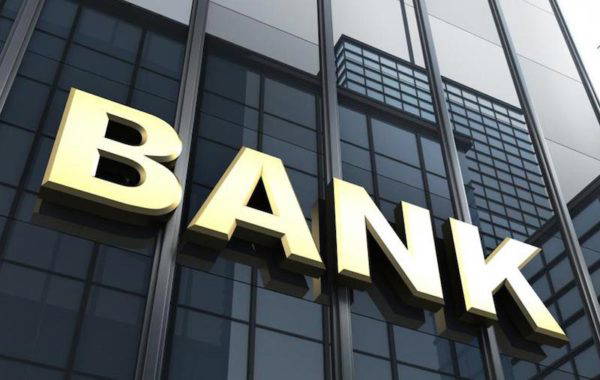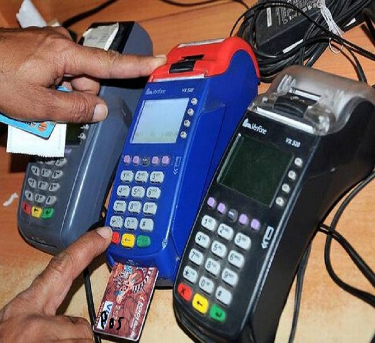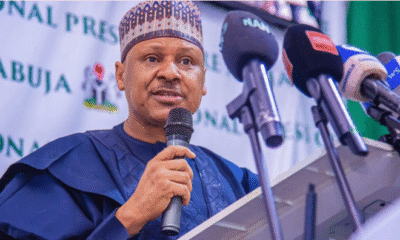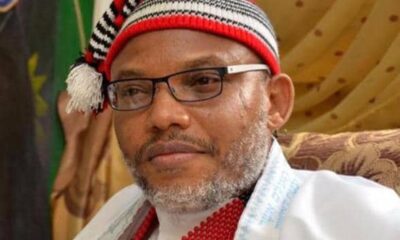
Business
Nigerian Banks record 29.4m closed accounts, 33m inactive —NIBSS

About 29.4 million bank accounts in commercial banks were recorded as closed as at March 2025 as banks make efforts to clean their books of questionable accounts and comply with regulatory order on linkage of bank accounts to National Identity Number, NIN.
This figure, however, represents a full recovery as the banks’ books showed 33.29 million closed accounts the previous month of February, which was a new high from 29.43 million recorded in January.
The March 2025 figure represents a 30.43 percent or 6.86 million year-on-year (YoY) increase in the number of closed bank accounts compared to 22.54 million bank accounts closed in March 2024.
These were contained in the latest data of the Nigerian Interbank Settlement System, NIBSS, which also indicated that the number of dormant or inactive bank accounts grew by 13.6 million or 71.3 percent YoY to 33.39 million in March 2025 from 19.79 million in the corresponding period of 2024.
A bank account is classified inactive when it records zero transactions including deposits, withdrawals, transfers or point-of-sale transactions for six months.
However, details of the “Industry Bank Account Database”, data reported by banks, and compiled by the Nigerian Interbank Settlement System, NIBSS, also indicated that the number of active bank accounts grew by 100.41 million or 45.7 percent YoY to 320.05 million in March 2025 from 219.64 million in March 2024.

Recall that in December 2023, the CBN issued a directive to all commercial banks in the country to restrict tier-1 accounts without proper Biometric Verification Number, BVN, and National Identity Number, NIN, that are not linked by Thursday, March 1st, 2024.
According to NIBSS data on BVN enrollment count, 66.23 million Nigerians have BVN as at July 2025 compared to 61.6 million as at April 2024.
Business
Dangote Refinery, a strategic national asset – Devakumar Edwin

• We’ve 150 days PMS stock
• We used Indigenous technical know-how to build this refinery, he reveals
The Vice-President, Dangote Refinery Limited, Mr. Devakumar Edwin has classified the refinery as strategic national asset for the country.
Mr. Edwin who made the statement during a tour of the oil facility located at the Lekki Free Trade Zone in Lagos, by editors of several media organizations across Nigeria, added that it has a strategic reserve of 150 days Premium Motor Spirit (PMS) stock.
He noted that aside being the second largest employer of labour in Nigeria after the government, the company has created indigenous petroleum engineers, contributes immensely to the Gross Domestic Product (GDP) and gradually transforming Nigeria into the leading global player in the oil services sector.
He explained that with the innovative ideas of Aliko Dangote, President of the Dangote Group, who does not believe that “anything is impossible,” they have created not just the largest refinery in the country, but a key player in the production of fertilizer across the world.
Edwin said: “We have here at the Refinery, 150 days national stock of Premium Motor Spirit (PMS). In case of diesel (AGO), we have more than 150 days stock, for Aviation fuel, we have much more. So what we have in this facility is a strategic national reserve.
“Before we set up this largest single train, the global petroleum refinery has 430,000 barrels per day in the Middle East. But, what we set up here is 50% larger than the hitherto largest refinery.
“In fact, the biggest thing we are more proud of is that a Nigerian company built it. If you go all across the world, to US, to Europe, to Asia, their refineries were built by Shell or Chevron or Exxon Mobil or Total, Bechtel from US, Siphon from Italy, Technip from France, JGC from Japan, Chiyoda, these six companies are the ones who have practically built all the refineries in the world.

“But when it came to our company, we went and talked to the three of them, they all said, okay, you are talking about 650,000 barrels. The capital cost will be roughly $30,000 a barrel, which means 30,000 into 650,000 is about 19 and a half billion dollars.
“So it’s 20 billion dollar investment. You will need to pay us 15% fees, which is $3 billion. And so my President said, no, let’s go and build it ourselves. We told him, you see companies like ExxonMobil, Shell, Total, Chevron they have never tried it. And you want us to do this? It’s almost impossible.
“Then he said, Edwin, have you forgotten? You know he has a plaque on his table which says ‘nothing is impossible’. Have you forgotten what I keep on my table? So he said, nothing is impossible. Let’s just go and do it.
“And that is how we built this refinery. Dangote Projects limited built this refinery. Nigerians can be proud of that.
“A Nigerian company attempted and built the world’s largest single train refinery. And now we can see the value addition which is creating in.
“The Dangote Refinery has become a game changer for Nigeria and its economy. The refinery has helpped stabilized the nation’s economy.
“You can see we are exporting our jet fuel primarily to Europe. Our gasoline has gone to us, our diesel is going to Europe. So it’s not only consistent supply of fuel but also high quality fuel.
“And then if you see the prices of fuel last year after the subsidy was removed, it was going up, stabilized at a level.
“You can go and check at what price it was selling and at what price it is selling today. I have been in Nigeria for 34 years. I have not seen even the price of stationary paper or a pure water coming down.
“And we have seen for the first-time fuel prices coming down. So we have not added value only in terms of quality and consistency of supply, but in terms of pricing.
“And, you can see the global impact of the price of the refinery. You can see how the currency values have been stable or sometimes even becoming stronger because instead of importing huge quantities of finished petroleum products, now you are having locally available products and we are also exporting products. So, we are also generating foreign, foreign exchange. So there is a net benefit to the country.
“This is a huge forex outflow. Now there is inflow and also outflow is reduced. In fact, if we continue to go in this direction strongly, the currency will even continue to become better. So, the refinery has been able to contribute in a large way”.
Aside being in oil and gas, the factory also has constructed a huge 300 million metric tonnes per annum Urea (fertilizer) plant and is currently developing additional 600 million metric tonnes plant beside the existing plant envisaging that nobody will feed feed Nigeria in due course in spite of population growth.
“What this means,” he said, “is that more Nigerians can go into commercial farming with available fertilizer at affordable price.
Equally speaking while taking the editors round the project site l, Engr. Osunsakin Adelani, a pioneer engineer at the plant, said the current gantry at Dangote Refinery can load 707 trucks of PMS within an hour.
“We have global best laboratories where everything we do here, at every stage of the production, are first tested for quality control before the completion of production. And we have the capacity to monitor every single live feed from every point in the refinery”.
He also said that the refinery is standing on 75 per cent swamp.l, of which 65 million cubic meters of sand was pumped from the Atlantic Ocean to reclaim the land to natural settlement.
“We did surveys which made us drive 250,000 pauch and colon of 62 meters, importing crude oil from Nigeria, US, Angola, and other countries that have the type of crude we require,’ and these is because, Nigeria is not producing enough crude to satisfy the refinery’s need.
To overcome the high cost of constructing the refinery from the so-called global best refinery construction engineering firms, “we set up a construction company to construct the roads here and to construct the refinery,” he added.
Business
Naira hits 10-month high on strong FX inflows

The naira extended its gains at the official market last week as it gained 0.72 per cent (or N10.5) to close at 1,455.17/$, the strongest it had been since December 2024, data from the Central Bank of Nigeria has revealed.
Analysts disclosed that the performance of the domestic currency was driven by robust foreign exchange inflows from portfolio investors and remittances.
At the parallel market, the naira strengthened 0.88 per cent to 1,475/$, also supported by improved liquidity.
The FX market had traded mixed through the week. It opened on a bearish note as early demand pressures caused by the exit of Foreign Portfolio Investors led to a dip. However, the market sentiments shifted midweek, buoyed by strong foreign inflows, particularly from FPIs sourcing naira to meet local fixed-income obligations.
AIICO Capital, in its outlook for the new week, said, “The naira is likely to remain stable in the near term, supported by improved US dollar supply and external reserves.”
Cowry Assets Management Limited, in a review of the FX market, said that it also noted that the local currency’s improvement was helped by better foreign exchange inflows, which reduced pressure on demand.

It maintained a positive outlook for the naira, saying, “We expect the naira to stay stable in the near term, supported by steady FX inflows and CBN interventions. However, rising import demand or weaker dollar inflows could slow further gains. Oil prices may remain under pressure due to higher supply, but any rebound in global demand could offer some support to Nigeria’s external earnings conditions, underpinning optimism for FX market stability; volatility in global oil markets may keep investor sentiment cautious.”
The external reserves also increased to $42.57bn, helped by higher inflows from oil sales, remittances, and portfolio investments. This steady rise in the external reserves gives the CBN more room to manage short-term pressures and supports expectations of naira stability in the near term.
In the past week, the naira got some cheery news that experts have said would further strengthen the liquidity in the market. The global index provider, FTSE Russell, in its September 2025 semi-annual country classification review for equities and fixed income, added Nigeria to the Watch List.
Explaining further, FTSE Russell said that the addition to the watchlist makes “possible reclassification from Unclassified to Frontier market status as the market meets the five FTSE Quality of Markets criteria required for attaining Frontier market status.”
Nigeria had been moved to the “Unclassified” category in September 2023 on the back of severe delays in foreign investors’ capital repatriation and FX transactions experienced by foreign investors as of that time.
However, recent policy reforms have improved FX liquidity, with market participants reporting no significant delays, prompting FTSE Russell’s decision. Now on the watchlist means Nigeria will be in a period of formal observation and engagement with market participants ahead of a potential upgrade in the next annual review cycle, expected in March 2026.
The analysts at Meristem Securities said, “This shift repositions Nigeria back on the investment radar for global funds that benchmark against the FTSE.
Frontier market index
Active funds will begin pre-positioning to capture the upside ahead of the formal re-entry, while passive funds will prepare for mandatory future allocations. This translates to potentially significant inflows of Foreign Portfolio Investment over the next year. In addition, this directly supports the Nigerian naira as anticipated capital inflows increase dollar supply, helping to sustain liquidity and stability in the FX market.
“In the short term, anticipation of fund flows is likely to fuel market optimism and price appreciation. However, long-term success depends on the Nigerian government’s commitment to sustaining a market-driven economy throughout this critical probationary period.” (PUNCH
Business
CBN sets new location rule for Opay, Moniepoint, PalmPay PoS Operators, mandates terminal tracking

The Central Bank of Nigeria (CBN) has issued a sweeping directive that will shut down Point-of-Sale (PoS) devices used outside a merchant’s registered business address.
In a circular released on August 25, 2025, the apex bank ordered all licensed operators—including Moniepoint, OPay, PalmPay, and commercial banks—to geo-tag every PoS terminal in their network within 60 days.
This new policy means that the millions of PoS devices currently in circulation must now be registered with exact GPS coordinates indicating where each machine is being used.

CBN
According to the CBN, the measure is designed to curb fraud, prevent the use of cloned or “ghost” terminals, and make it easier to track transactions in real time.
The regulator further explained that all existing PoS machines must be upgraded with built-in GPS systems and connected to the National Central Switch, which will monitor their locations through a special software development kit (SDK).

Under the new rule, merchants will only be allowed to process payments within a 10-metre radius of their registered business address. Any terminal that is not geo-tagged before the deadline will be deactivated.
The directive also covers newly deployed devices, which must be geo-tagged before they can be activated. Responsibility for ensuring compliance will fall on operators such as Payment Terminal Service Providers (PTSPs) and mobile money companies.
The CBN stressed that the initiative aims to reduce fraud and eliminate unauthorised PoS activities by ensuring that every device’s location is verified and continuously monitored.
Compliance checks will commence on October 20, 2025, giving operators just two months to upgrade what could amount to more than 4 million active PoS terminals across the country.
The growth of Nigeria’s PoS industry partly explains the new restrictions. As of 2023, the country had 1.5 million registered PoS agents—equivalent to one agent for every 80 people. A recent Bloomberg report also highlighted the density of operators, noting there are as many as 1,600 PoS terminals per square kilometre.
This surge in adoption is one of the main reasons the CBN has introduced tougher oversight rules.
In 2024, the apex bank mandated that all PoS transactions be routed through licensed Payment Terminal Service Aggregators (PTSA) to boost transparency. That same year, operators were required to register their devices with the Corporate Affairs Commission (CAC).
The latest geo-tagging directive, analysts say, underscores the CBN’s determination to tighten its grip on Nigeria’s booming PoS industry while clamping down on fraud and unauthorised usage.
-

 News3 days ago
News3 days agoJUST IN: Scores feared dead as suspected herdsmen attack Benue community again
-

 News3 days ago
News3 days agoDSS sacks 115 officers (See Photos)
-

 News3 days ago
News3 days agoBREAKING: Tinubu nominates Enugu Commissioner as Minister
-

 News3 days ago
News3 days agoImmigration officers seize Natasha’s passport, say it’s routine
-
 Minister of Information and National Orientation, Mohammed Idris
Minister of Information and National Orientation, Mohammed Idris Minister of Information and National Orientation, Mohammed IdrisNews2 days ago
Minister of Information and National Orientation, Mohammed IdrisNews2 days agoFG accuses foreign lobbyists of fueling Christian genocide narrative in Nigeria
-

 News15 hours ago
News15 hours agoBREAKING: Nnamdi Kanu writes Trump, urges investigation of genocide against Igbos
-

 News12 hours ago
News12 hours agoTinubu swears in Kingsley Udeh as minister
-
 Minister of Information and National Orientation, Mohammed Idris
Minister of Information and National Orientation, Mohammed Idris Minister of Information and National Orientation, Mohammed IdrisNews13 hours ago
Minister of Information and National Orientation, Mohammed IdrisNews13 hours agoDon’t panic, we’re tackling terror, protecting religious freedom, FG tells Nigerians



























